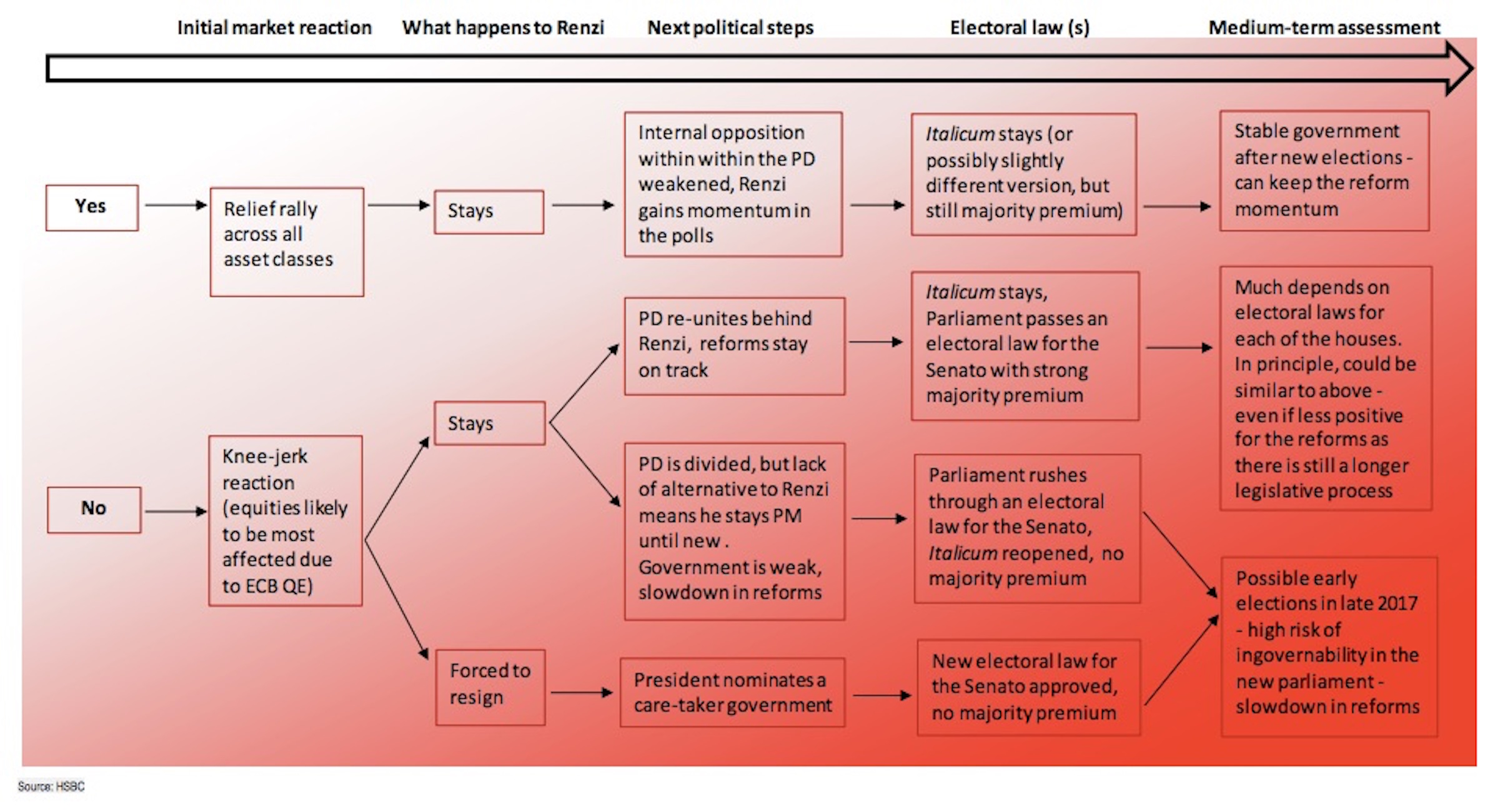Italy’s upcoming referendum, which has been cited as one of the biggest risks to Europe in 2016 alongside Brexit, could lead to a number of devastating consequences for the country and the rest of the European Union.
According to Fabio Balboni, European economist at HSBC, a “no” vote could lead to three possible scenarios, including the resignation of prime minister Matteo Renzi:
Italians will go to the polls on December 4 to vote on a series of changes to the way Italy’s institutional frameworks are structured.
As HSBC points out in this chart, a “yes” vote will substantially reduce the power of the senate – Italy’s upper house – and large amounts of power will be taken away from Italy’s regions and centralised to Rome.
However, if Italians vote "no" this could lead to three potential scenarios. Two of the scenarios involve Renzi staying in government, but this looks unlikely considering he has repeatedly said he would step down, in a similar move to British PM David Cameron's resignation following the EU referendum in June.
HSBC pointed out that "even if he stayed, he could be left weakened with a system that is incapable of delivering reform," in a note to clients.
Renzi has had a difficult year. As HSBC points out in the report, "faltering growth, the refugee influx and problems with the Italian banks have conspired against him, fuelling support for the populist and eurosceptic parties Five Star Movement and Northern League."
"These parties want to use the referendum as an opportunity to force a general election, and the polls point to a very tight race," added HSBC.
This means that if there is a "no" vote, it could give more power to Eurosceptic parties and potentially disrupting Italy's membership in the EU.

